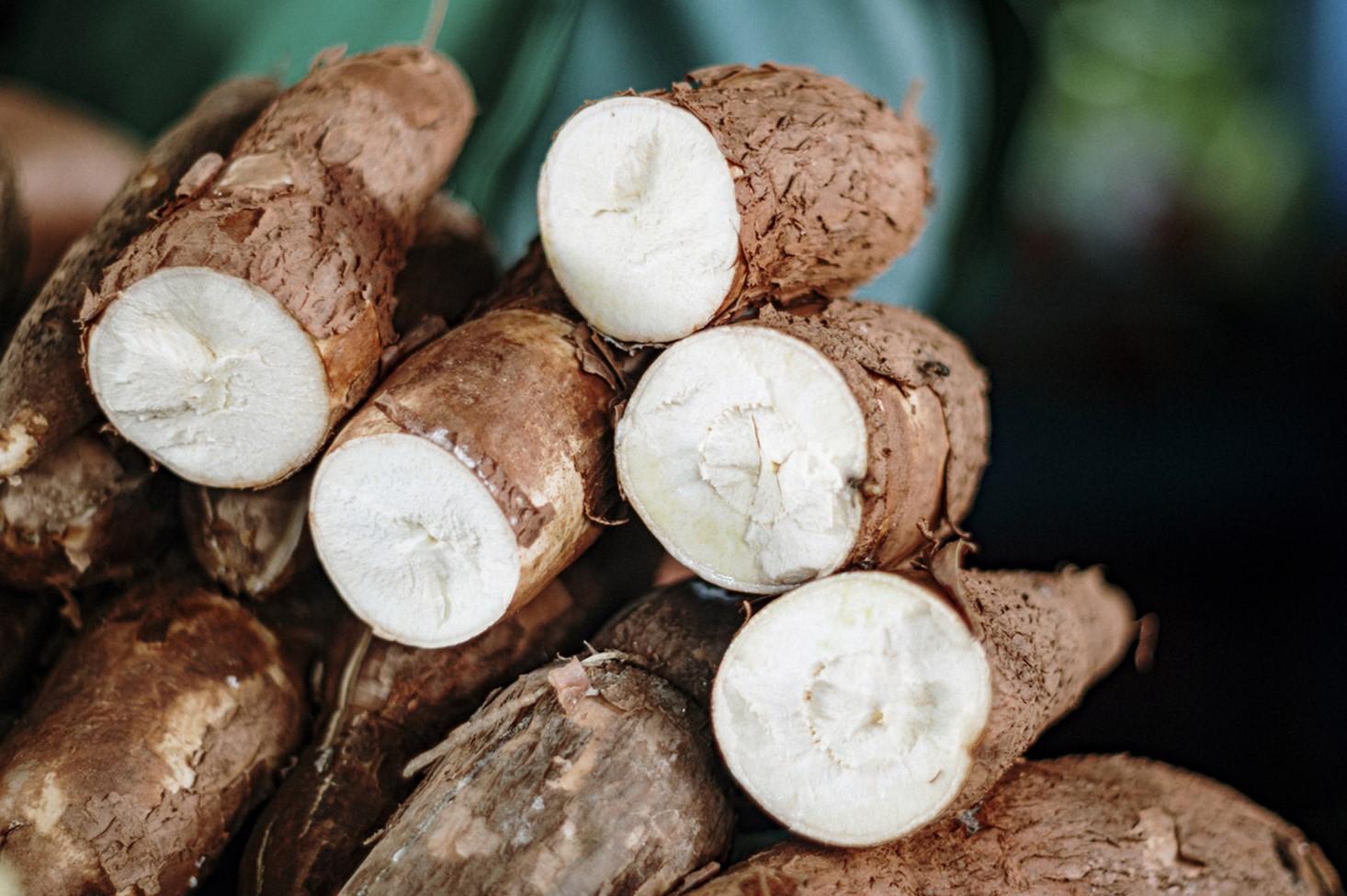
Cassava, also known as yuca or manioc, is a root vegetable that plays a crucial role in the diets of millions worldwide. But what makes cassava so special? For starters, it's a major source of carbohydrates, providing energy to many communities, especially in tropical regions. This versatile plant can be transformed into various dishes, from savory to sweet. Did you know that cassava is gluten-free, making it a popular choice for those with gluten sensitivities? Additionally, it's drought-resistant, which means it can thrive in challenging climates where other crops might fail. Curious about more cassava facts? Keep reading to uncover 25 fascinating tidbits about this incredible root vegetable!
Key Takeaways:
- Cassava is a versatile root vegetable rich in nutrients and used in global cuisines. However, it must be properly prepared to avoid cyanide poisoning.
- Cassava's economic importance and environmental impact make it a vital crop, providing food security and income while requiring sustainable farming practices.
What is Cassava?
Cassava, also known as yuca or manioc, is a root vegetable native to South America. It's a staple food for millions worldwide due to its versatility and nutritional value. Let's dive into some fascinating facts about this incredible plant.
-
Cassava is a major source of carbohydrates, providing energy to millions of people, especially in tropical regions.
-
The plant thrives in poor soil conditions, making it an essential crop in areas with less fertile land.
-
Cassava roots can be processed into various products, including flour, tapioca, and even biofuel.
-
Despite its benefits, raw cassava contains cyanogenic glycosides, which can produce cyanide if not properly prepared.
Nutritional Value of Cassava
Cassava is not just a source of energy; it also offers several essential nutrients. Here are some key nutritional facts about cassava.
-
Cassava is rich in vitamin C, which supports the immune system and skin health.
-
It contains significant amounts of dietary fiber, aiding digestion and promoting gut health.
-
The root is a good source of manganese, a mineral important for bone health and metabolism.
-
Cassava leaves are also edible and packed with protein, vitamins, and minerals.
Cassava in Global Cuisine
Cassava's versatility makes it a popular ingredient in various cuisines around the world. Let's explore how different cultures use this root vegetable.
-
In Africa, cassava is often pounded into fufu, a starchy side dish served with soups and stews.
-
Latin American countries use cassava to make arepas, a type of flatbread.
-
Tapioca pearls, derived from cassava starch, are a key ingredient in bubble tea, popular in Asia.
-
In India, cassava chips are a popular snack, often seasoned with spices.
Economic Importance of Cassava
Cassava plays a crucial role in the economies of many developing countries. Here are some facts highlighting its economic significance.
-
Cassava is one of the most drought-tolerant crops, ensuring food security in arid regions.
-
It provides income for millions of smallholder farmers, particularly in Africa and Asia.
-
The global cassava market is valued at billions of dollars, with increasing demand for cassava-based products.
-
Cassava processing industries create numerous job opportunities, from farming to manufacturing.
Environmental Impact of Cassava Cultivation
Cassava cultivation has both positive and negative environmental impacts. Let's take a closer look at some of these effects.
-
Cassava plants help prevent soil erosion due to their extensive root systems.
-
The crop requires less water compared to other staples like rice and maize, making it more sustainable in water-scarce regions.
-
However, improper cassava farming practices can lead to soil degradation and loss of biodiversity.
-
Sustainable farming techniques, such as intercropping and organic farming, can mitigate some of the negative impacts.
Cassava in Science and Technology
Cassava is not just a food source; it also has applications in science and technology. Here are some intriguing facts about its uses beyond the kitchen.
-
Scientists are researching genetically modified cassava to increase its nutritional value and resistance to pests.
-
Cassava starch is used in the production of biodegradable plastics, offering an eco-friendly alternative to traditional plastics.
-
The root's high starch content makes it a potential source for bioethanol, a renewable energy source.
-
Cassava-based adhesives are used in the paper and textile industries due to their strong binding properties.
-
Research is ongoing to develop cassava varieties that can withstand climate change, ensuring its future as a vital food source.
Cassava's Impact on Our World
Cassava's role in our lives is more significant than many realize. This root vegetable, rich in carbohydrates, serves as a staple for millions globally. Its versatility shines through in various dishes, from tapioca to cassava flour. Beyond the kitchen, cassava's industrial uses include biofuel production and biodegradable plastics, showcasing its environmental benefits.
Farmers appreciate cassava's resilience. It thrives in poor soils and withstands drought, making it a reliable crop in challenging climates. This hardiness supports food security in regions prone to harsh weather conditions.
However, cassava isn't without its challenges. Proper preparation is crucial to remove cyanogenic glycosides, which can be toxic if consumed improperly. Despite this, its benefits far outweigh the risks when handled correctly.
Cassava's impact spans nutrition, industry, and agriculture, proving it’s more than just a root—it's a vital resource for our future.
Frequently Asked Questions
Was this page helpful?
Our commitment to delivering trustworthy and engaging content is at the heart of what we do. Each fact on our site is contributed by real users like you, bringing a wealth of diverse insights and information. To ensure the highest standards of accuracy and reliability, our dedicated editors meticulously review each submission. This process guarantees that the facts we share are not only fascinating but also credible. Trust in our commitment to quality and authenticity as you explore and learn with us.


